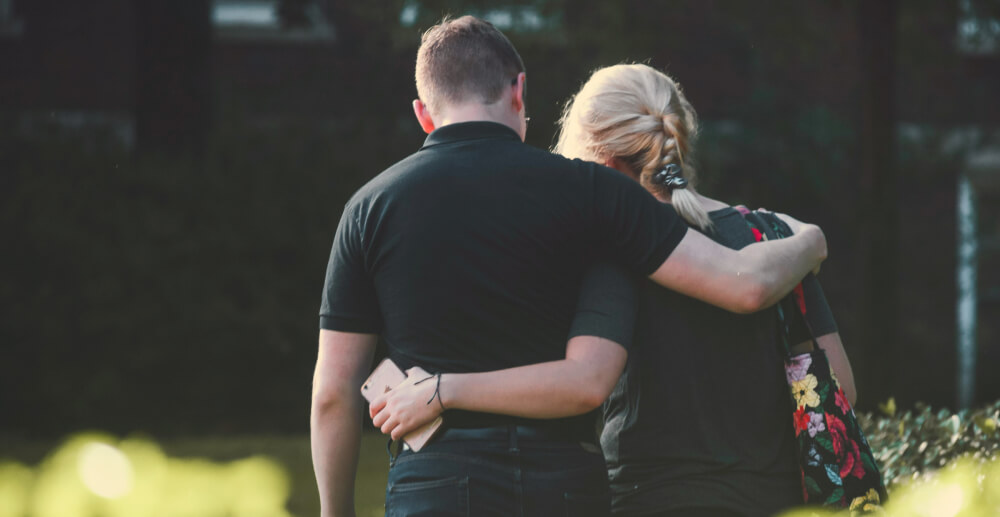“When things fall apart and we’re on the verge of we know not what, the test of each of us is to stay on that brink and not concretize. The spiritual journey is not about heaven and finally getting to a place that’s really swell.”
— Pema Chodron
I’ve grappled with depression since childhood. It would manifest in feelings of hopelessness, low mood, lethargy, isolation, and a sense of despair. I didn’t want to do anything and family would complain that no one could please me. I was difficult to be around — even I didn’t want to be in my company.
Around age 12, I discovered that alcohol and drugs numbed the symptoms of depression and provided relief, albeit temporarily. I chased that escapism throughout my addiction in my teens to age 32, when I found sobriety.
My episodes of depression were frequent and prolonged. I was regularly off work for months at a time, and on one occasion I was treated by a psychiatrist for clinical depression. That’s a big deal in the UK. Typically we’re fobbed off by our general practitioners and placated with medication that doctors know little about. We’re rarely referred to a specialist. Therapy is either an out-of-pocket expense or you have to wait 6 to 12 months to see someone on the National Health Service. So I took my medication and personal leave for a couple of weeks. Once I’d rested, stopped drinking as much, and allowed the medication to take effect, I’d return to work.
I coasted along in this pattern for over a decade. The problem was that in the end, the medication and the alcohol didn’t work: the more I drank and used, the shorter the numbing effect and the greater the pain afterwards. My depression was worse than ever and I often contemplated ending my life. I reached a breaking point when I could no longer escape myself. It was then that I found recovery.
“Recovery has given me the tools to cope with the discomfort of depression more effectively, but that doesn’t mean I don’t still have an aversion to those difficult feelings. ”
While getting sober has helped dramatically improve and regulate my brain chemistry — where my mood is stable and I’m able to manage it with medication, exercise, healthy eating, and rest — I still suffer from bouts of depression. They’re less frequent and usually predictable. They tend to happen in fall and winter or when precipitated by a period of acute stress, like moving, dealing with a breakup, or buying my first home.
Most recently, however, there has been an overwhelming amount of change and strong emotion to deal with: I launched a podcast, I bought a home, and I experienced a number of expensive household emergencies back-to-back, leading to financial worry and instability. And I also faced grief as the anniversary of my brother’s death fell in September. This amount of stress led to a long period of exhaustion. Even though I tried my best to rest and recuperate, my brain chemistry had shifted enough to result in a period of depression. It hit me hard this year.
“According to the Substance Abuse and Mental Health Services Administration, 3.7 percent — 9.2 million — of adults in the U.S. experience co-occurring substance use disorder and mental illness. This translates as one in four people.”
Recovery has given me the tools to cope with the discomfort of depression more effectively, but that doesn’t mean I don’t still have an aversion to those difficult feelings. That resistance is perhaps compounded by the harmful belief that recovery should be happy, joyous, and free — like it tells us in the Big Book of Alcoholics Anonymous. If it’s not, we’re left thinking that we’re doing something wrong. This simply isn’t true.
The reality is that substance use disorders today are very different from when the Big Book was written in 1939. According to the Substance Abuse and Mental Health Services Administration, 3.7 percent — 9.2 million — of adults in the U.S. experience co-occurring substance use disorder and mental illness. This translates as one in four people.
And just like recovery, there is healing in knowing you are not alone in your suffering. It resets your expectations that life will be happy and joyful all the time. Knowing that takes the pressure off.
There is also healing in the process of falling apart. Pema Chodron says,
“Things falling apart is a kind of testing and also a kind of healing. We think that the point is to pass the test or to overcome the problem, but the truth is that things don’t really get solved. They come together again and they fall apart again. It’s just like that. The healing comes from letting there be room for all this to happen: room for grief, for relief, for misery, for joy.”
Over the years I’ve come to deal with depression I’ve realized that my work, like Pema suggests, isn’t in fighting depression or overcoming it, it’s in how I give myself permission and space for it to happen, like every other emotion. And that’s recovery for me: showing myself compassion to walk through this experience without using a substance or avoiding the pain. It’s also in knowing that depression is part of the human experience, as uncomfortable as it is.
I know that I can make it more comfortable by caring for myself and using certain tools and resources, including:
-
Attending weekly therapy
-
Walking my dog at the local trail or around the block each day
-
Cuddling my dog
-
Eating at least one nutritious meal a day
-
Bulk cooking where possible
-
Letting go of challenging goals and targets
-
Making a daily list of tasks but only assigning myself three at a time
-
Asking for help from my doctor, including trying new medication
-
Talking to friends and family and explaining my situation. I know that I can ask for help like regular phone calls, or support when needed. It also keeps them informed when I’m less responsive
-
Asking clients for an extension on a deadline when necessary
-
Taking days off when I need to, even if that is during the week
-
Showering every day
-
Sipping hot tea
-
Taking a long bath and reading a novel
-
Showing myself compassion for not being able to perform at my usual speed
-
Saying no
-
Telling myself it’s okay to do nothing
-
Getting a takeout if it makes my life easier
-
Going for a massage
-
Having acupuncture
-
Taking myself for a pedicure
-
Sitting in the sun for ten minutes
-
Taking vitamin D
-
Ensuring I keep up with my medications
-
Sleeping for 8 hours every day
-
Using a SAD lamp (at least 10,000 lux) for 30 minutes a day
-
Surrounding my office with plants
-
Wearing comfortable clothes
-
Drinking at least 6 glasses of water a day
Some of these are non-negotiables for me, like therapy and getting enough sleep and water each day. I do them no matter what — even on my really challenging days — because I know that they sustain me. Self-compassion is something I am striving for. It’s really hard to adjust to drastic shifts in your abilities when you know what you’re capable of and when you live in a world that demands so much of you to keep your head above water. But right now, I just have to do the next right thing. The rest will take care of itself.
If you’re struggling, I hope you find some solace in the knowledge that you’re not alone in experiencing depression. You aren’t doing anything wrong. I hope you find whatever you can that soothes your discomfort and that it passes, until next time.




